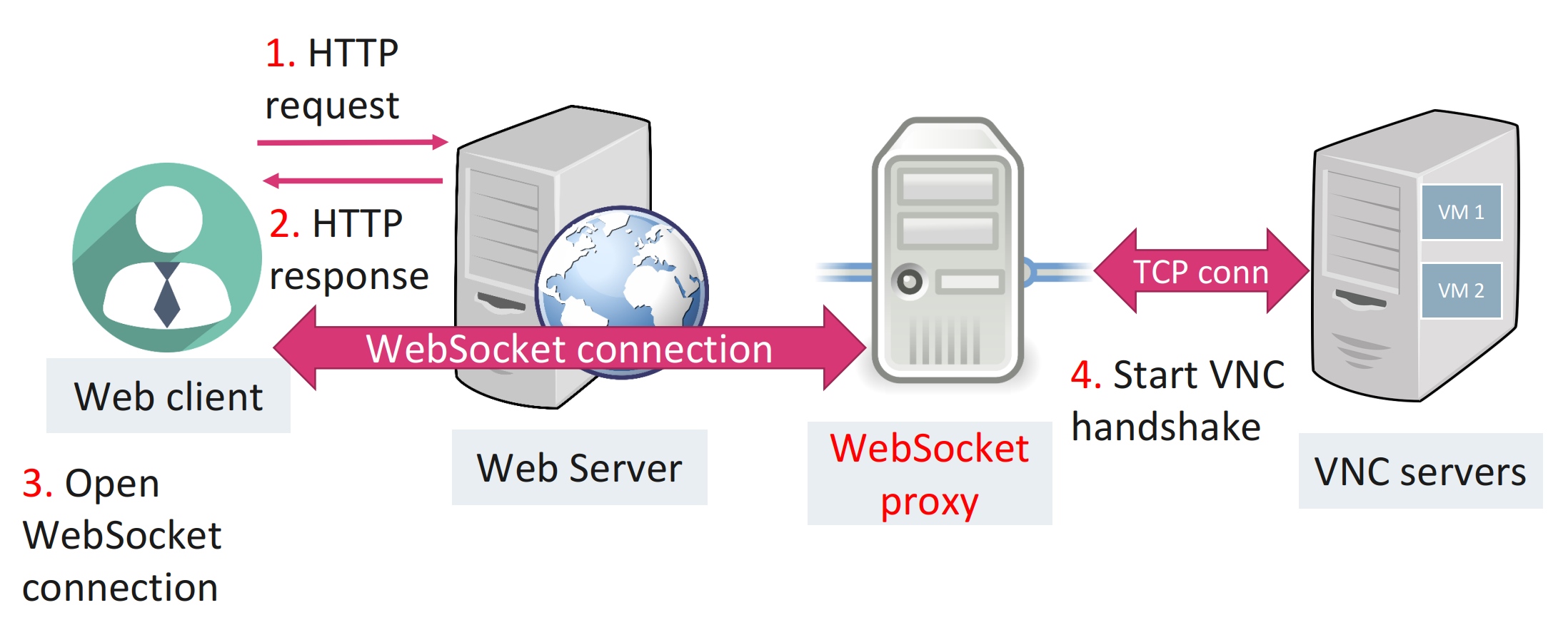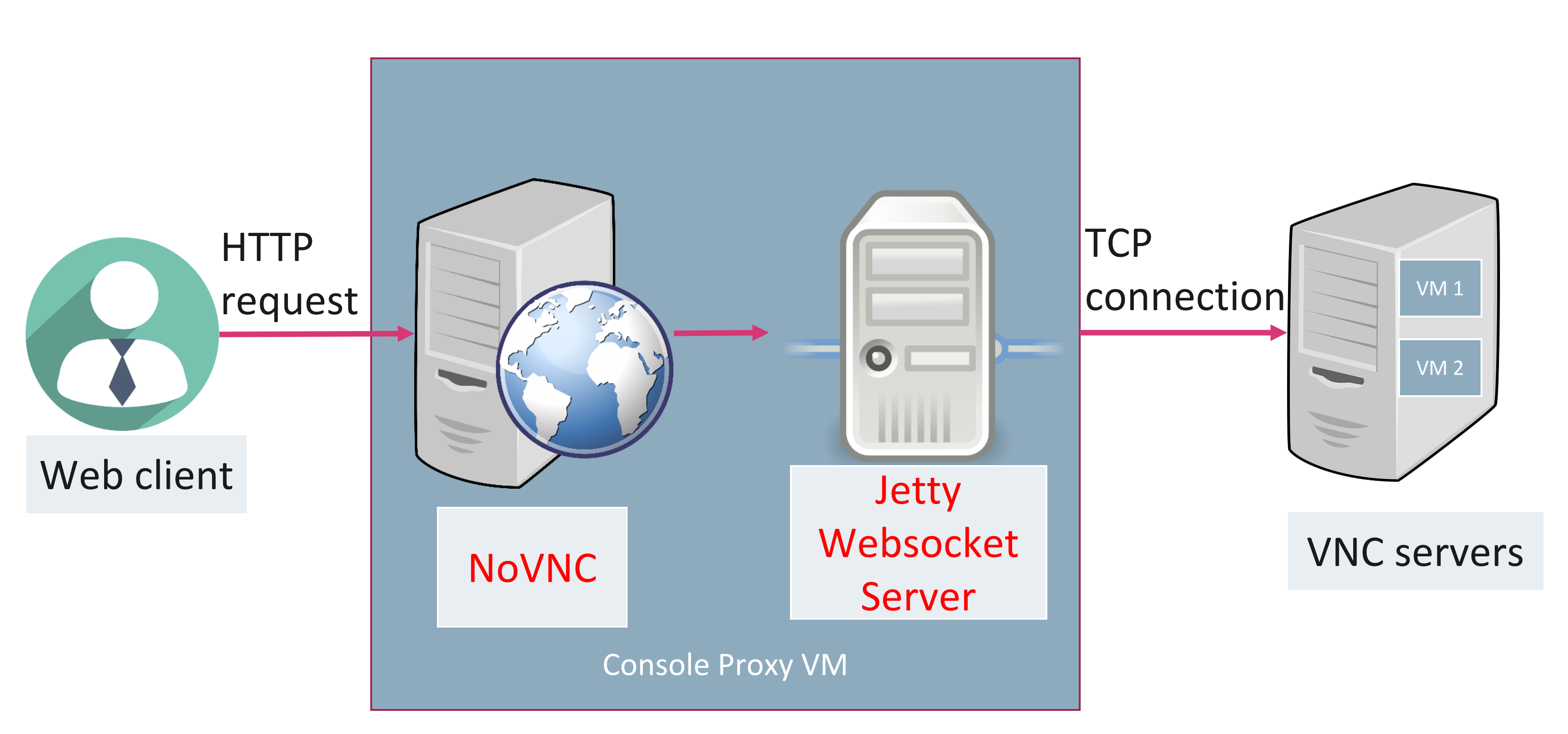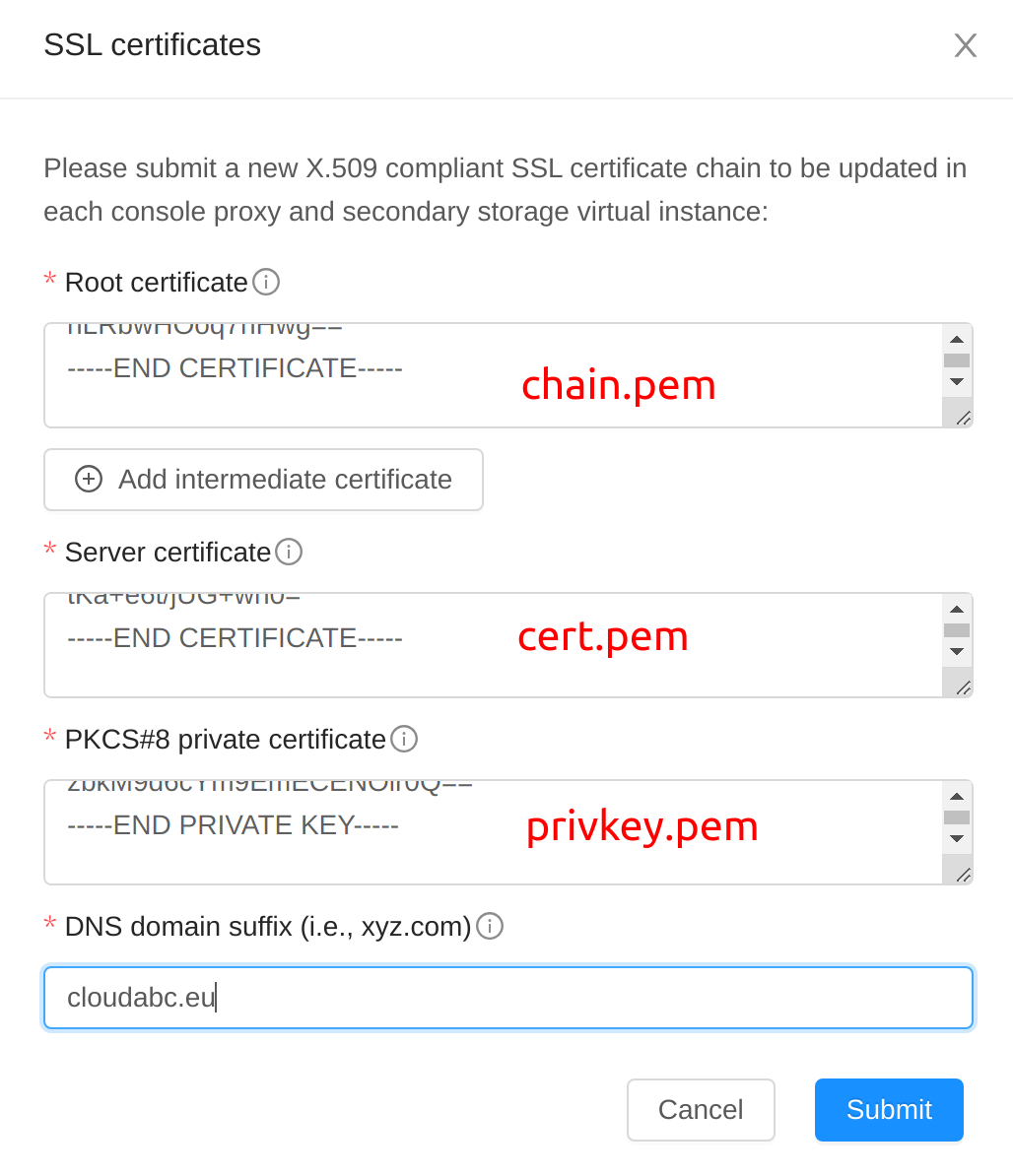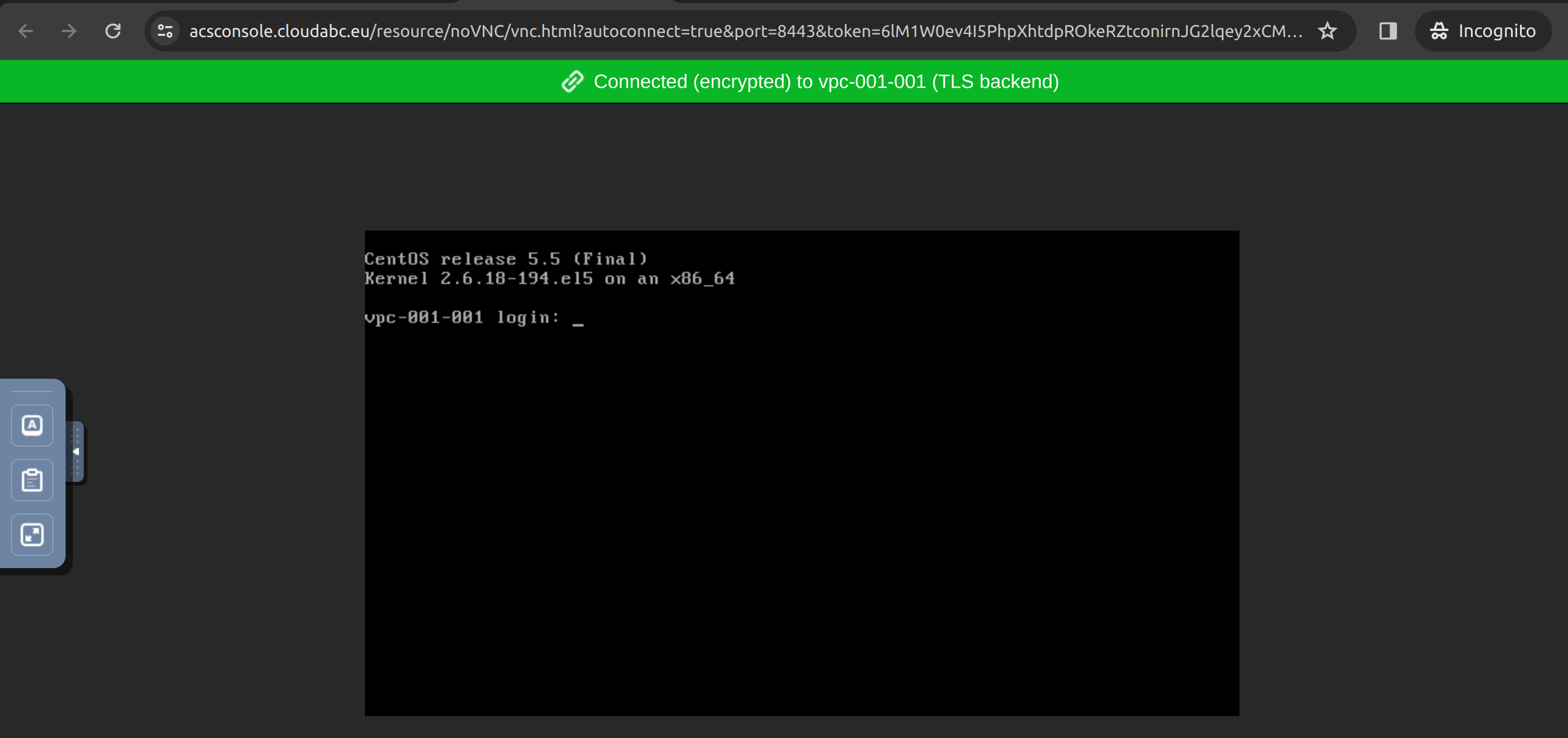Setup Nginx reverse proxy for Apache CloudStack (Part 2 - Console Proxy VM)
Apache CloudStack provides VM console via a System VM which is named Console Proxy VM (aka CPVM). This article explains how CPVM works, how to secure CPVM and configure nginx for CPVM.
How CPVM works
WebSocket is standardized by the IETF as RFC 6455 in 2011. It provide a mechanism for browser-based applications that need two-way communication with servers that does not rely on opening multiple HTTP connections (e.g., using XMLHttpRequest or iframes and long polling). More information can be found at https://tools.ietf.org/html/rfc6455
The following workflow explains how web users access the VM console via websocket.

- Firstly, the web client sends HTTP request to a web server and get the HTTP response which supports VNC display and websocket connections.
- Secondly, the web client sends request to websocket proxy to open websocket connection.
- Then the websocket proxy starts VNC handshake and VNC authentication if needed.
- The websocket connection between web client and VNC server via the websocket proxy is established.
- The VNC console is displayed on the UI
CPVM components
The Console Proxy VM (CPVM) has two main components

- NoVNC. noVNC is both a HTML VNC client JavaScript library and an application built on top of that library. noVNC runs well in any modern browser including mobile browsers (iOS and Android). Refer to NoVNC
- Jetty Websocket Server. CPVM acts as a websocket proxy between web client and VNC port of VM (on KVM, XenServer/XCP and VMware 6.5-), or websocket connection (on VMware 7.0+).
Please note,
- If SSL is disabled in CPVM, the NoVNC port is
80and Websocket port is8080 - If SSL is enabled in CPVM, the NoVNC port is
443and Websocket port is8443
Upload SSL certificates for System VMs
Since secure nginx HTTPS server will be configured for VM console, the SSL certificate needs to be uploaded in Apache CloudStack, the System VMs need to be configured as well. Please refer to Securing CloudStack 4.11 with HTTPS/TLS
| Configuration name | value |
|---|---|
| consoleproxy.url.domain | acsconsole.cloudabc.eu |
| consoleproxy.sslEnabled | true |
Please restart cloudstack-management service, and stop/start the CPVM.
If you do not have SSL certificate, you can generate a Let’s Encrypt certificate via certbot, please refer to the previous blog Acquire Let’s Encrypt Certificate by certbot
Navigate to Infrastructure and click the icon SSL certificates, a dialog is pop-up.

Wait until the System VMs are Running and agent state is Up.
Setup Nginx for Console Proxy VM
The nginx config has two parts, (1) for NoVNC server (port 443); (2) for Websocket Proxy (port 8443).
[root@mgmt1 ~]# cat /etc/nginx/conf.d/acsconsole.conf
map $http_upgrade $connection_upgrade {
default upgrade;
'' close;
}
server {
listen 8443 ssl http2;
server_name acsconsole.cloudabc.eu;
ssl_certificate /etc/letsencrypt/live/cloudabc.eu/fullchain.pem;
ssl_certificate_key /etc/letsencrypt/live/cloudabc.eu/privkey.pem;
ssl_protocols TLSv1 TLSv1.1 TLSv1.2 TLSv1.3;
ssl_ciphers HIGH:!aNULL:!MD5;
ssl_verify_client off;
location /websockify {
proxy_pass https://10.0.53.173:8443/websockify;
proxy_http_version 1.1;
proxy_set_header Upgrade $http_upgrade;
proxy_set_header Connection $connection_upgrade;
proxy_set_header Host $host;
}
}
server {
listen 443 ssl http2;
server_name acsconsole.cloudabc.eu;
ssl_certificate /etc/letsencrypt/live/cloudabc.eu/fullchain.pem;
ssl_certificate_key /etc/letsencrypt/live/cloudabc.eu/privkey.pem;
ssl_protocols TLSv1 TLSv1.1 TLSv1.2 TLSv1.3;
ssl_ciphers HIGH:!aNULL:!MD5;
ssl_verify_client off;
location / {
proxy_pass https://10.0.53.173;
proxy_set_header Host $http_host;
proxy_set_header X-Real-IP $remote_addr;
proxy_set_header X-Forwarded-For $remote_addr;
proxy_set_header X-Forwarded-Proto $scheme;
proxy_set_header X-Forwarded-Host $http_host;
}
}
Refer to WebSocket proxying how to setup nginx for websocket.
Example: VM console
Look at the URL of the VM console, it uses https://acsconsole.cloudabc.eu and (websocket) port is set to 8443

